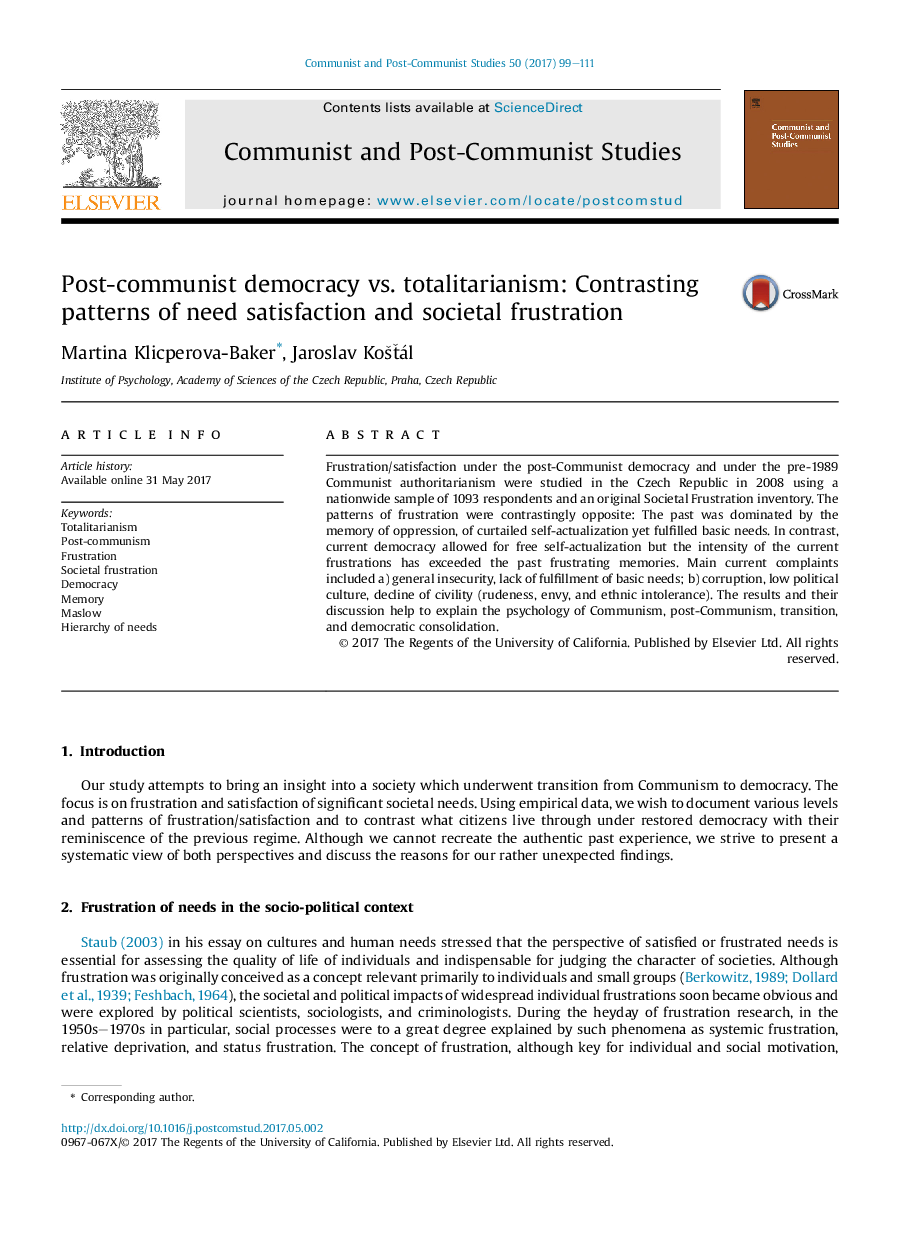ترجمه فارسی عنوان مقاله
دموکراسی پس از کمونیسم در مقابل توتالیتاریسم: الگوهای متناسب رضایت و ناامیدی اجتماعی
عنوان انگلیسی
Post-communist democracy vs. totalitarianism: Contrasting patterns of need satisfaction and societal frustration
| کد مقاله | سال انتشار | تعداد صفحات مقاله انگلیسی |
|---|---|---|
| 125657 | 2017 | 13 صفحه PDF |
منبع

Publisher : Elsevier - Science Direct (الزویر - ساینس دایرکت)
Journal : Communist and Post-Communist Studies, Volume 50, Issue 2, June 2017, Pages 99-111
ترجمه چکیده
خشونت / رضایت در دموکراسی پس از کمونیست و تحت اقتدارگرایی کمونیست پیش از سال 1989 در جمهوری چک در سال 2008 با استفاده از یک نمونه از 1093 نفر از پاسخ دهندگان و یک موجودیت ناامیدی اصلی جامعه مورد مطالعه قرار گرفت. الگوهای ناامیدی به طور متقارن مخالف بودند: گذشته، حافظه ظلم و ستم، خودکفایی محدود شده، اما نیازهای اساسی را برآورده کرد. در مقابل، دموکراسی کنونی به خودجویی آزاد کمک می کند، اما شدت ناکامی های کنونی از خاطرات ناامید کننده گذشته فراتر رفته است. شکایات اصلی در حال حاضر عبارتند از: ناامنی عمومی، فقدان نیازهای اساسی؛ ب) فساد، فرهنگ سیاسی پایین، کاهش تمکین (ناراحتی، حسادت، و عدم تحمل قومی). نتایج و بحث آنها به توضیح روانشناسی کمونیسم، بعد از کمونیسم، انتقال و تحکیم دموکراتیک کمک می کند.

